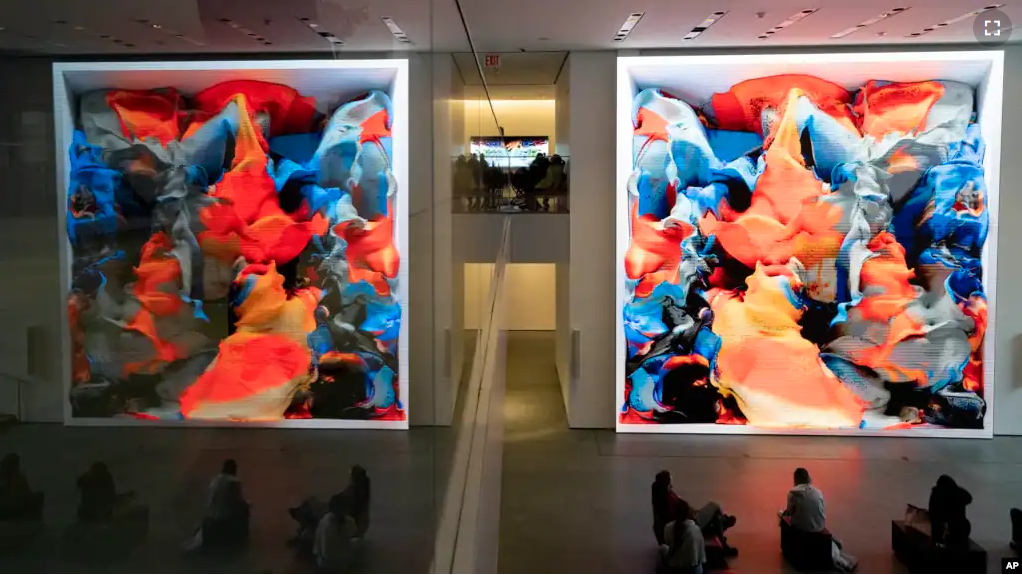Kelly McKernan’s paintings are often striking images of female figures in bright colors of green, blue, pink or purple.
McKernan uses the pronoun they instead of his or her to call themself. The 37-year-old artist from Nashville, Tennessee calls their works “surreal.” They say they are “dealing with discomfort in the human journey.”
About a year ago, McKernan began seeing online images strangely similar to their own. They soon learned that companies were feeding artwork into AI systems to train software programs to create similar images.
Surviving as an artist is difficult enough. The pandemic made it worse. But now McKernan faces another threat: artificial intelligence (AI).
McKernan told the Associated Press, “I didn’t give my consent for my name or work to be used this way.”
McKernan said they even tried to contact some of the companies to say “Hey, little artist here, I know you’re not thinking of me at all, but it would be really cool if you didn’t use my work like this.” But there was no answer.
In January, McKernan, and two other artists, Karla Ortiz and Sarah Andersen, started legal action against three image-generator companies: Stability AI, Stable Diffusion and Midjourney. They also named the online gallery DeviantArt in the case.
The artists are seeking to protect their copyrighted works and their careers. They say the AI image-generators violate the rights of millions of artists by using their artworks for training and then producing similar works that compete against the originals.
The artists are seeking damages and a court order to stop AI companies from using their works without permission.
McKernan said, “At the end of the day, someone’s profiting from my work. I had rent due yesterday, and I’m $200 short… And it just doesn’t feel right.”
Stability AI would not comment to the Associated Press (AP) for the story. In a court document, the company said it uses simple words to create “new and unique images.” The company added the program creates new works and does not violate copyright.
A Stability AI company official appeared before a U.S. Senate hearing in July. He said that artists are not paid for the images used to train AI software.
Midjourney and DeviantArt did not return emailed requests for comment.
Karla Ortiz works in the entertainment industry. Her work has been used in several well-known movies, including Guardians of the Galaxy Vol. 3 and Jurassic World.
She feared that companies would think artists cost too much. Why, she asked, would companies employ artists if they can pay $30 a month for AI-generated works?
McKernan agreed: “Will I even have work a year from now?”
A federal judge in San Francisco will decide the case.
Meanwhile, in a temporary win for human artists last month, another federal judge agreed with the decision by the U.S. Copyright Office not to issue copyright for AI-generated artwork.
I’m Gena Bennett.
Gena Bennett adapted this report for VOA Learning English from The Associated Press news report.
_______________________________________________________
Words in This Story
surreal – adj. like a dream, not real
discomfort – n. a little unease or pain
consent – v. permission
cool – adj. pleasing, desired
generator – n. something that creates or produces
copyright – n. if something like a piece of art, music, or book has a copyright, it is illegal to produce, copy, or use it without permission
original – n. not a copy; the first
rent – n. money paid to live in a house or apartment
unique – adj. different from everything else; the only one of its kind
